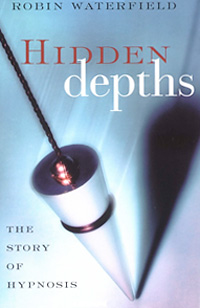Science and spirituality on the California coast
The Esalen Institute is a cluster of meeting rooms, lodging facilities and hot tubs all nestled into a stunning craggy coastal outcrop of the Pacific Ocean in Big Sur, Calif. In his 1985 book, “Surely You’re Joking, Mr. Feynman”, the Nobel laureate physicist Richard Feynman recounts his experience in the natural hot spring baths there, in which a woman is being massaged by a man she just met. “He starts to rub her big toe. ‘I think I feel it,’ he says. ‘I feel a kind of dent — is that the pituitary?’ I blurt out, ‘You’re a helluva long way from the pituitary, man!’ They looked at me, horrified … and said, ‘It’s reflexology!’ I quickly closed my eyes and appeared to be meditating.”
With that as my introduction to the Mecca of the New Age movement, I accepted an invitation to host a weekend workshop there on science and spirituality. Given my propensity for skepticism when it comes to most of the paranormal piffle proffered by the prajna peddlers meditating and soaking their way to nirvana here, I was surprised the hall was full. Perhaps skeptical consciousness is rising! (continue reading…)
Comments Off on Mr. Skeptic Goes to Esalen
Perceptual-blindness experiments challenge the validity of eyewitness testimony and the metaphor of memory as a video recording
Picture yourself watching a one-minute video of two teams of three players each. One team wears white shirts and the other black shirts, and the members move around one another in a small room tossing two basketballs. Your task is to count the number of passes made by the white team — not easy given the weaving movement of the players. Unexpectedly, after 35 seconds a gorilla enters the room, walks directly through the farrago of bodies, thumps his chest and, nine seconds later, exits. Would you see the gorilla?
Most of us believe we would. In fact, 50 percent of subjects in this remarkable experiment by Daniel J. Simons of the University of Illinois and Christopher F. Chabris of Harvard University did not see the gorilla, even when asked if they noticed anything unusual (see their paper “Gorillas in Our Midst”). The effect is called inattentional blindness. When attending to one task — say, talking on a cell phone while driving — many of us become blind to dynamic events, such as a gorilla in the crosswalk. (continue reading…)
read or write comments (1)
A review of Robin Waterfield’s Hidden Depths: The Story of Hypnosis.
In the early 1980s I began a personal odyssey into altered states of consciousness. Because I thought I might like to use my brain again, I eschewed mind-altering substances and instead opted for (continue reading…)
read or write comments (15)
If the brain mediates all experience, then paranormal phenomena are nothing more than neuronal events

Five centuries ago demons haunted our world, with incubi and succubi tormenting victims as they lay asleep. Two centuries ago spirits haunted our world, with ghosts and ghouls harassing sufferers during all hours of the night. This past century aliens haunted our world, with grays and greens abducting captives and whisking them away for probing and prodding. Nowadays people are reporting out-of-body experiences, floating above their beds. What is going on here? Are these elusive creatures and mysterious phenomena in our world or in our minds? New evidence adds weight to the notion that they are, in fact, products of the brain. Neuroscientist Michael Persinger, in his laboratory at Laurentian University in Sudbury, Ontario, for example, can induce all these perceptions in subjects by subjecting their temporal lobes to patterns of magnetic fields. (I tried it myself and had a mild out-of-body experience.) (continue reading…)
read or write comments (5)
Rarely does anyone weigh facts
before deciding what to believe
In April 1999, when I was on a lecture tour for my book Why People Believe Weird Things, the psychologist Robert Sternberg attended my presentation at Yale University. His response to the lecture was both enlightening and troubling. It is certainly entertaining to hear about other people’s weird beliefs, Sternberg reflected, because we are confident that we would never be so foolish. But why do smart people fall for such things? Sternberg’s challenge led to a second edition of my book, with a new chapter expounding on my answer to his question: Smart people believe weird things because they are skilled at defending beliefs they arrived at for non-smart reasons. (continue reading…)
read or write comments (22)






